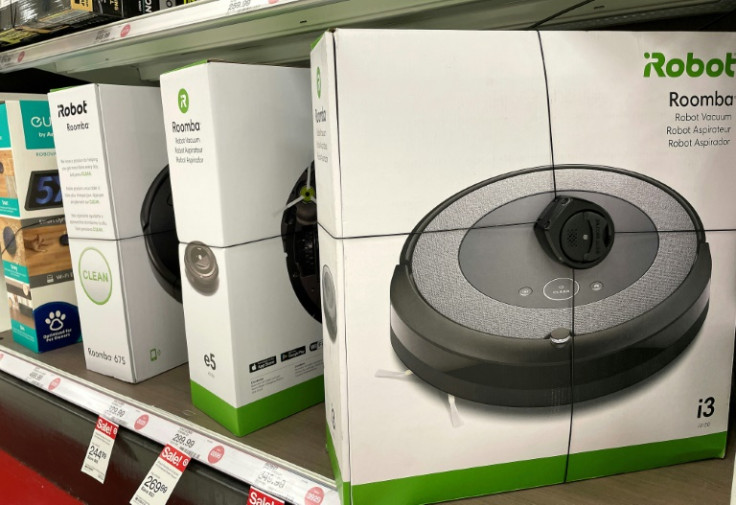
Amazon on Monday said it was dropping its plans to buy the iRobot vacuum maker after the EU's antitrust authority objected to the plan over competition concerns.
The news sent shares in iRobot into a tailspin, and the device maker followed the announcement of the failed deal with a restructuring plan that would see 350 jobs, or 30 percent of the company, laid off and the departure of its CEO.
"We're disappointed that Amazon's acquisition of iRobot could not proceed," said David Zapolsky, Amazon SVP and General Counsel.
The EU in July opened an antitrust investigation into Amazon's $1.7-billion purchase of iRobot, which is best known for its Roomba self-operating vacuum cleaners.
Brussels at the time said it was probing whether the acquisition would allow Amazon to "restrict competition" and "strengthen its position as an online marketplace provider."
The EU said it was especially concerned that Amazon's role as the world's preeminent internet retail hub would allow it to crush competition from other vacuum-makers seeking online buyers.
The European Commission also pointed to questions over how Amazon would use the data collected by iRobot's self-driving devices that upload detailed information about the user's personal home.
The EU's deadline to make a decision on the deal was on February 14, and media reports widely said that the commission would lay down its veto.
The commission said it "took note" of Amazon's decision to pull out of the deal.
In a statement, competition commissioner Margrethe Vestager said the EU investigation had found that "Amazon would have had the incentive to foreclose iRobot's rivals because it would have been economically profitable to do so."
Among other threats, she said Amazon could have potentially delisted rivals from its shopping site or increased the cost of advertising for those rivals.
She also said the EU had been "in close contact" with the Federal Trade Commission, the US antitrust enforcer, throughout the investigation.
Amazon executives believed that given the objection of the commission and the lack of acceptable remedies to allay their concerns, there was no way forward for the deal.
"This outcome will deny consumers faster innovation and more competitive prices, which we're confident would have made their lives easier and more enjoyable," Amazon's Zapolsky said.
Amazon added that it believed "undue and disproportionate regulatory hurdles" discourage entrepreneurs and hurt competition in the long run.
In a statement, the companies said Amazon would pay iRobot a previously agreed upon termination fee.
Following the pullout by Amazon, shares of iRobot plummeted by more than eight percent in Monday trading.
The Computer & Communications Industry Association (CCIA), which represents Big Tech, slammed the EU's blockage of the deal.
"This sends the wrong message to both global investors and EU start-ups: as soon as you reach a certain size, you can forget about future mergers and acquisitions," Head of CCIA Europe, Daniel Friedlaender said in a statement.







